
Drama depicting the Tohoku earthquake and tsunami that occurred on March 11, 2011 from the perspective of a female doctor. Takako Kawashima works as head anesthesiologist at the Sendai Medical Center. She balances her married life with help from her husband Teiichi, who runs a private clinic, but their lives are upturned by the disaster.
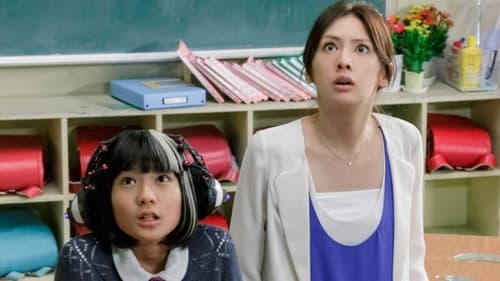
Sister Marika
New student Kanji transfers to 6th grade 2 class, where Ayami Mutoi works as the homeroom teacher. Students begin to talk among themselves that they have seen new transfer student Kanji in a dream. Yuiko Koto also had a night mare. In her nightmare, a boy that looks transfer student Kanji appeared as a prince. Ayami Mutoi tries to keep that to herself. She actually likes the prince in her dream.

A story about a woman from Yanaka Village, Tochigi Prefecture, which was abolished by the government due to the Ashio Copper Mine pollution incident in the late Meiji Period. The drama depicts the struggle of the woman who gradually matures as a person through her encounters with versatile figures, including socialists and writers, after moving to Tokyo.

In Sapporo, college student Watanabe Sachi approaches her band leader boyfriend Takumi with the news that she is pregnant. Finding it difficult to deal with the fallout, the couple decide to leave Sapporo for the port city of Hakodate instead. Soon, however, they are separated and Sachi has to make a difficult decision about her baby on Christmas Eve. Her decision will ultimately involve Iwadate Shuichi and his wife Mizue, an older couple who still mourn the loss of their own child.

In 2011, a journalist arrives in Nagaoka, a Japanese village that underwent destruction during both World War II and the 2004 Chūetsu earthquakes, and is now notable for the fireworks it launches annually in memory of the victims of war. She is there for two reasons: firstly, to learn about the experiences of Nagaoka's inhabitants, and secondly, to watch a stage play written by an enigmatic student of her ex-boyfriend, which depicts the bombing of the city during WWII.

Misayo Uegusa
A young girl named Ann moves with her mother to her mother's hometown after her parents go through a divorce. There, Ann meets her first love Daigo Kitamura. Daigo helps her get used to life in the country. Ann even gets through her mother's suicide.

Fujimi Hirano
Thirteen years afterward, I wonder if those who bombed Hiroshima are looking at me and saying: 'We did it! We were able to kill another person!' They should be," murmurs Minami (played by Kumiko Aso), one of the two leading female characters in Yunagi no Machi, Sakura no Kuni, as she lies dying in 1958, her life brought to a premature end by sickness resulting from her exposure to atomic bomb radiation. This is a story about those who at least initially survived the first U.S. atomic bombing of 1945 and their descendants in contemporary times. The film, based on a comic by Fumiyo Kono, jumps between the two time frames and quietly depicts the sorrow and mortification experienced through the everyday lives of laid-back and soft-spoken Hiroshima people. Only a few scenes of the bombing and the ensuing devastation are featured.

Chie Kuroyoshi

Kaori is pursuing her career as a journalist for a magazine with great enthusiasm. But as a result of an article she wrote, she is sent to work for a community magazine at Fukuoka. An anonymous letter arrives, which puts her in contact with an old and forgotten theater, the 'Minato Theater' in nearby Shimonoseki.

TV remake of Ozu's 'Late Spring'

Tomie Bonomiya
Akira, a teacher from Tokyo, has just arrived in a small rural town to begin his new job. Soon after arriving, he meets, and begins to fall for, Miki, a papermaker and part of a large and unusual family. When he learns of an ancient legend that the family carries the curse of the Inugami, or Dog God, he brushes it off as silly superstition. After a series of mysterious deaths, however, the townspeople begin to grow restless, and Akira must confront the truth about Miki and her family.

Screen icon Sayuri Yoshinaga stars in this historical melodrama about geishas in the southern city of Nagasaki set during the 1920s. Though she was sold to a geisha house at a young age, Aihara (Yoshinaga) has since become a master samisen player and woman of great elegance. Though not especially rich, she doles out money to street kids, in particular, a pretty young flower vendor named Oyuki, who becomes Aihara's godchild of sorts. Yet when a geisha (Reiko Takashima) from a rival red-light district insults Aihara and her brethren, she fights back. Soon an all-out geisha war looms. Dapper businessman and amateur scholar Tojiro Koga (Tetsuya Watari) appears on the scene and defuses tempers -- suggesting that difference be settled through a competition of artistic abilities. Smitten with her talent and mature beauty, Koga invites Aihara to record Nagasaki folk songs before they disappear forever
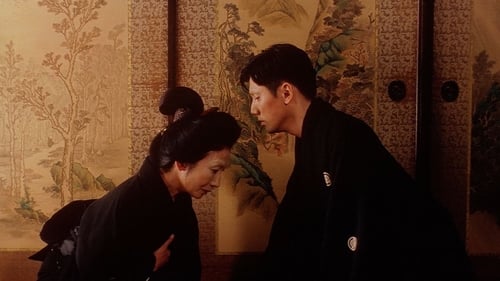
Yukio's Mother
When his mother's untimely death quickly follows his father's, a doctor begins to believe a killer may be targeting him and his amnesiac wife.

A salaryman faces a major life change as his firm undergoes financial difficulties. To add to his troubles, a man claiming to be his long-estranged father shows up at his house requesting shelter. One of the best of Somai's seriocomic studies of the messiness of family life.

This is a biographical film about the late Yoko Araki, who was the wife of Japan's leading photographer, Nobuyoshi Araki.
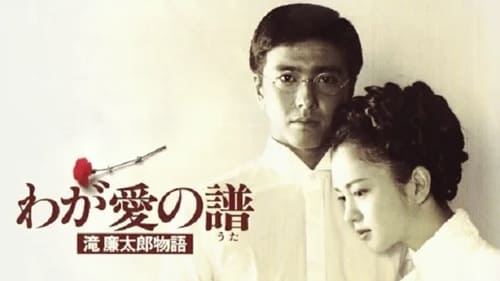
A dying pianist composes one final song for his childhood friend.
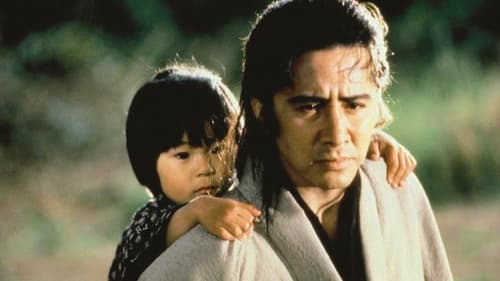
Wife of the Chamberlain
A noble samurai serving the Shogun as 'Kogi Kaishaku-nin' (Official Executioner) is the target of a plot by the evil Yagyu Clan to take away his position and replace him with a member of their own family. When his wife is murdered and evidence is produced that he was plotting against the Shogun the Code of Bushido calls for him and his son to commit sepuku. Instead he defies the Shogun's orders and takes up arms against his enemies, becoming an assassin for hire.

Mayumi Asai
A single mother is being investigated into the death of her ex-husband, which brings to the fore the obscure details of her past.

Sayo has just celebrated her sixteenth birthday when she attends a temple festival. On her way back she sees a large cherry tree which is infamous for the legend of dead white horse. When her fiancé returns from war and visits her he comes across a white horse which he takes in. The man also does not see himself engaged anymore as his family has lost its wealth.

This film is Beat Takeshi's first starring role.

Fujiko
Tora-san becomes friends with Toraya's newest tenant, a pachinko-playing electrician that goes by the nickname Watt. Tora attempts to match Watt with a young waitress.

Drama and intrigue about defense contracts and corruption.

The Shinobi-no-Mono series was so successful that Daiei Studios dipped into the well one more time, making the best 60′s B&W ninja movie ever seen in the otherwise color-dominated year of 1970. Issei Mori directs Hiroki Matsukata as the reluctant leader of a small band of spies charged with kidnapping a noblewoman from a heavily ninja-proofed castle. The finality of the air slowly began to fill like smoke, and in all that had become dark the loyalty of the Ninja who dared to go shone like light as they entered a world shrouded in mystery. Things do not go as planned in what is possibly the darkest and most fatalistic of the already noir-ish 60′s fare. Both the decade and it’s distinctive style of shinobi cinema went out on a high note with Mission Iron Castle.

Kato's Wife
In the prewar days leading up to the Second Sino-Japanese War of 1937, head flight instructor Lt. Katō Tateo of the Imperial Japanese Army-Air Corps trains new volunteers from the Army's Infantry to become Japan's next generation of fighter pilots at the Tokorozawa Flying School. Flying Kawasaki Ko-4 biplanes, Lt. Katō will train both friend and future foe alike. But as war in China breaks out, Katō now in command of the 5th Rentai will take his untested men flying antiquated planes into aerial combat against the Chinese Air Force who is now headed by Lt. Cho who Katō both earlier befriended and personally trained himself. While Katō's squadron ultimately achieves air superiority over the skies of Manchuria, it comes at a high price in men to which each loss carries a heavy burden that he alone must carry. As the war widens into the Second World War, Captain Katō must battle an ever advancing array of deadlier new enemies flying ever more modern fighter planes.

Just when you think Kyoshiro's life can't get any stranger, someone starts running around raping and murdering, and leaving notes proudly proclaiming that he did it. Tracking down the real culprit willtake him along a twisted trail that involves the Shogun's harem, hidden christians, and positively pregnant politics!

Set up to be the patsy by a rival gang, Furuta Makoto attacks the yakuza boss he thinks is responsible for his father’s murder. He then learns it was all a plot to take over his father’s turf and he seeks vengeance against the puppet master behind the entire conspiracy. His quest for justice leads him to prison where he must fend off the attack of a master assassin before he can make his escape and go after the true killer!

Otane
Well before “Shogun” as warring clans were fighting for power throughout Japan, a Portuguese vessel ran aground off Tanegashima. Lord Tokitaka helped Captain Pinto repair his ship. The grateful captain offered the lord a gift--a matchlock musket—the first firearm ever seen in Japan. But like a great stone hurled into placid waters, this simple gift will start a revolution. Tokitaka tasks Kinbei, his greatest swordsmith, to copy this musket and build guns for Japan. While Kinbei struggles to forge Japan’s first musket, a great love blooms between Captain Pinto and Kinbei’s daughter Wakasa. But for Kinbei, to let Wakasa marry Pinto and go to Portugal is unthinkable. And as Kinbei creates Japan’s first matchlock factory, Lord Oda Nobunaga will seize upon firearms as the key to sweep all other clans before him, tearing a blood-soaked path of destruction through Japan.
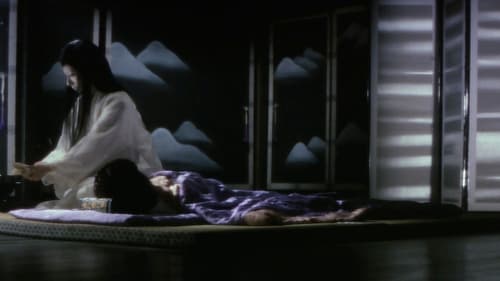
Yukionna
A master sculptor and his apprentice are trapped in a bad snow storm after finding a special tree for carving a statue for the local temple. Finding refuge in an abandoned hut they celebrate their luck in finding the tree but soon they are visited by the Snow Witch who freezes the sculptor to death but takes pity on the apprentice. He must promise to never speak of this or she'll return and kill him.

Oshizu
In the 19th century Edo period, sisters Oshizu and Otaka have sacrificed their personal happiness to work and care for their ailing father. Otaka falls in love, but can’t accept a marriage proposal since her older sister needs to marry first. When Oshizu learns of this decision, she takes matters in her own hands.

Kiyoko
A Japanese film
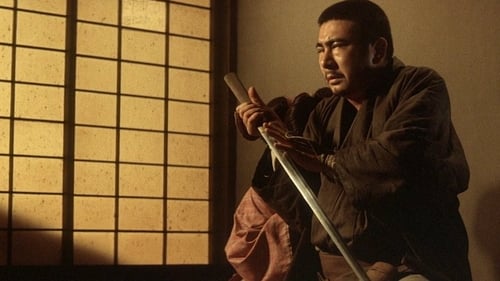
Oshizu
Zatoichi comes upon the town of Tonda, overrun by gangsters. Using one of his favorite techniques, Zatoichi proceeds to win 8 ryo in a rigged gambling game. Of course, the local gangsters attempt to kill him, and the adventure begins. It turns out a blacksmith named Senzo examines Zatoichi's cane sword, and discovers it to be forged by his old mentor. Senzo discovers the sword is at the end of its usefulness and will break when it is used next.

Katsumi
Nemuri Kyoshiro discovers a conspiracy centering around a band of disgruntled samurai wanting to avenge the death of their sensei, a political reformer that pushed for better provisions for the lower classes until he was assassinated by Shogunate agents. Their plot, to set fire to the oil refineries of two rich merchants and unleash a raging inferno that will hopefully burn down the Edo Castle.
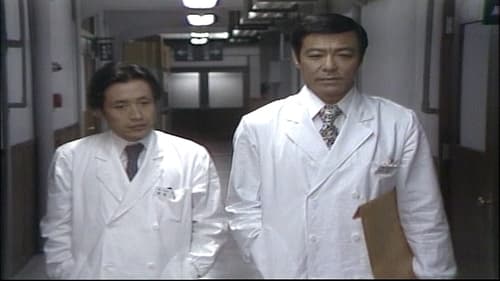
The story contrasts the life of two doctors, former classmates and now both assistant professors at Naniwa University Hospital in Osaka. The brilliant and ambitious surgeon Goro Zaizen stops at nothing to rise to a position of eminence and authority, while the friendly Shuji Satomi busies himself with his patients and research.

Lady Sayuri
The tyrannical Lord Danjo Mikoshiba covets the rich, fertile lands surrounding Lake Yakumo. During a memorial ceremony for the late Chigusa lord, Mikoshiba launches an attack, overthrowing the honorable Lord Juro. Just when all seems lost, Daimajin rises from Lake Yakumo to settle a score of his own.
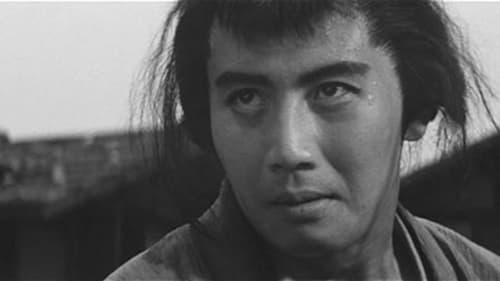
A naively honorable samurai (played by Raizo) comes to the bitter realization that his devotion to moral samurai principles makes him an oddity among his peers, and a very vulnerable oddity in consequence. He takes the blame for the misdeeds of others, with the understanding that he will be exiled for one year and restored to the clan's good graces after the political situation dies down. As betrayal begins to heap upon betrayal, he realizes he'll have to live out his life as a master-less ronin, if not hunted down and killed.


Akane
[Period covered: 1616] Kirigakure Saizo (Mist Saizo) returns for the final time as he sets out to assassinate Tokugawa Ieyasu in order to avenge the death of Lord Sanada Yukimura. But first he must contend with Ieyasu’s own ninja group led by the powerful Fuma Daijuro, who has a score to settle with the men of Iga that dates back 280 years to the war between the Genji and the Heike at the Battle of Dan-no-Ura. Tremendous fighting and great plot twists highlight this exceptional look into the lives of the mysterious ninja of Japan.

Nezumi Kozō is the nickname of Nakamura Jirokichi, a Japanese thief and folk hero who lived in Edo during the Edo period. His exploits have been commemorated in kabuki theatre, folk songs, jidaigeki, and modern pop culture.

Chiyoume
After a yakuza boss is assassinated by a rival, his naval officer son returns home to take over the gang.
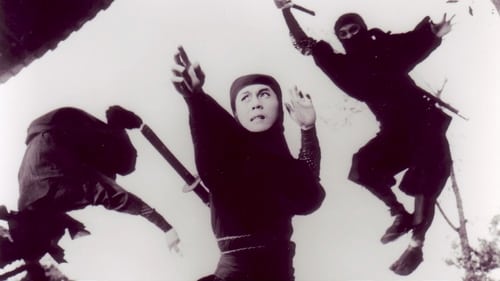
[Period covered: 1616] On May 8th, 1615 the summer campaign of Osaka has reached the climax. This film takes place immediately following 'Ninja 4: Mist Saizo, Last of The Ninja'. Staying one step ahead of the Shogun’s forces, “Mist” Saizo tries to save the Sanada Clan, and avenge the death of his lord by assassinating the first Tokugawa Shogun. Following the first four films in this remarkable series, more previously unknown Ninja skills are shown to the world for the first time. The action heats up as Saizo single-handedly attacks the Shogun’s Palace!
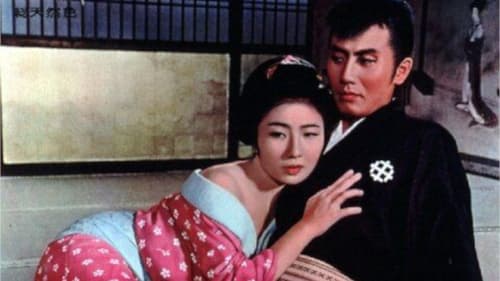
A fugitive christian "saint" (female, of course!) and a sadistic drug-addled princess both have their eye on Kyoshiro. The fact that a bunch of ruthless smugglers also want him dead is the least of his problems!

A comedy directed by Koji Shima about a men's game. Reckless and exciting, definitely worth watching! Miyoshi Oki was born in Hokkaido and grew up in a dirty carriage that his father owned. His dream was to have a horse with a good coat that costs 10 million yen and he set a goal for it. At the invitation of Otaki-gumi executive Iwasa, he joined Otaki-gumi while the leader Sozaburo was sick. Miyoshi's method is not to deal with the yakuza's morale and slashing, but to handle things mentally....

Wandering samurai Nemuri Kyoshiro (Raizô Ichikawa) finds a bulls-eye on his back after befriending the shogunate's tightfisted financial adviser, Asahina, who's earned the wrath of the shogun's self-indulgent daughter for cutting off her allowance. The enraged princess promptly hatches a scheme to have Asahina bumped off -- along with his protector, Kyoshiro. Shiho Fujimura also stars in this installment of the enormously popular film series.
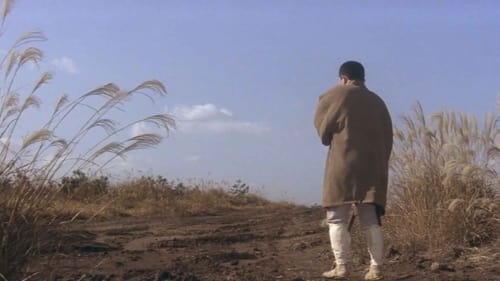
Omitsu
Zatoichi is sworn to protect the life of a young girl and without any real allies finds himself in the middle of a bloody turf war.
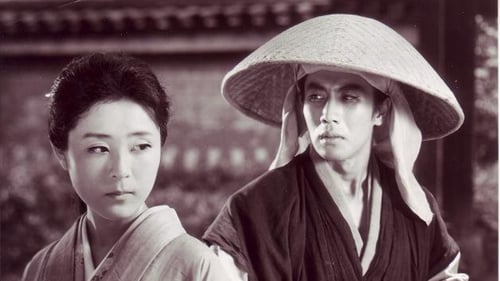
Maki
[Period covered: 1582-1594]. As the film opens, the warlod Nobunaga Oda rides to Iga Ayanokuni shrine. He is asked if he thinks he has destroyed all the ninja who opposed him and answers that he suspects that there may be more. A servant brings water and tests it first. The paige dies and we hear gunshots as two ninja flee the scene. His suspicions confirmed, Nobunaga oversees the execution of captured ninja and decides that, in the future, he needs a much crueler method of execution. The daimyo Hideyoshi comes to visit.

Oto
The warlords overrun the country while the farmers are starving, and forced to become soldiers to keep the wolf from the door. The farmers are recruited in groups of fifteen. In Yaju's village, there are only twelve men, so they press Oto, who looks more like a boy than a girl, to join, disguised as a man.
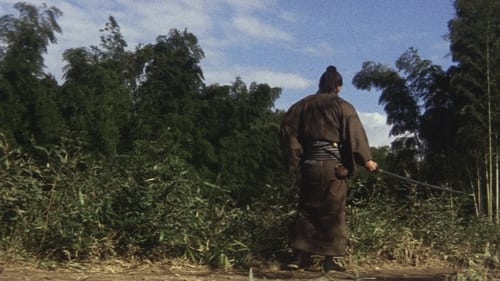
Shima
As winds of change sweep Japan, an honest man joins the Shinsenhumi out of admiration for its leader and because he wants to live and die as a samurai. However, as his involvement grows, reality and idealism come into deadly conflict.
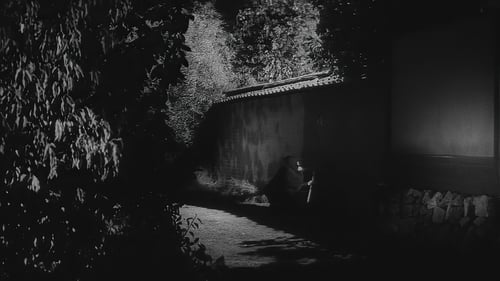
Maki
Warlord Oda Nobunaga seeks to unite a fractured Japan. A young man trained in the arts of ninjitsu is manipulated by a ninja master into attempting to assassinate the warlord before he completes his task.

Ei
A fishing village is terrorized by a giant whale, and the fishermen are determined to kill it.

Fujiko Yamaguchi
The son of an executioner and the assassin he loved yet murdered learns of his origins, leaving his foster parents to avenge his mother's death.

Oshiho
Ushimatsu's father told him never to reveal his lower-caste heritage; years later, he now contemplates confiding in an activist fighting against such discrimination.









































